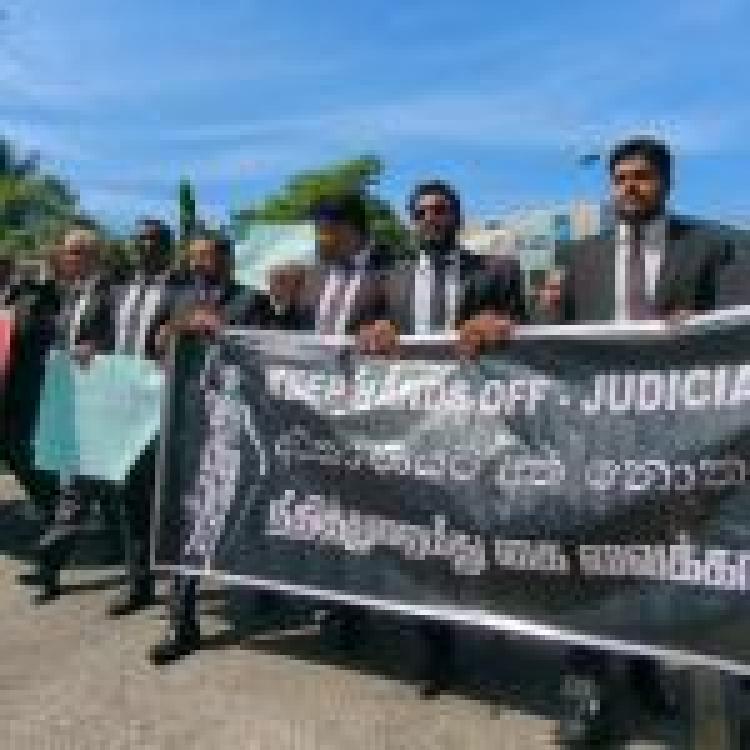.jpg)
A hartal has taken place across the Mullaitivu district today, protesting against the intimidation of a Tamil judge who was forced to resign and flee the island last month.
The hartal was initiated due to the resignation of Mullaitivu Judge, T. Saravanarajah. The Judge had resigned from all his posts due to the threats that had been issued against him and the pressure for him to change his verdict regarding the Kurunthurmalai archeological site. As an extension of these demands, Tamil politicians demanded that the independence of the judiciary be preserved, and highlighted the ramifications of the ongoing Sinhala colonisation project of the North-East that is being carried out by the state.
Read more about the resignation of Judge T. Saravanarajah:
Mullaitivu District Judge flees country amidst death threats
Pressure on Mullaitivu judge undeniable says Sumanthiran
Sri Lanka’s CID claims no threat to Tamil judge in final report
Businesses in Mullaitivu displayed solidarity with the protests, resulting in a complete shutdown of all economic activities in the district. The collective efforts of the community significantly limited the movement of the general public, effectively bringing Mullaitivu to a standstill.
.jpg) While private buses were not operational during the hartal, government bus services continued to function, providing essential services. Schools remained open due to ongoing exams. However, the lack of public movement during the hartal significantly impacted financial activities, even though banks and other financial services were open.
While private buses were not operational during the hartal, government bus services continued to function, providing essential services. Schools remained open due to ongoing exams. However, the lack of public movement during the hartal significantly impacted financial activities, even though banks and other financial services were open.
.jpg)
Legal services were also disrupted as lawyers joined the strike, refusing to engage in legal activities. Throughout the Mullaitivu District, areas such as Mulliyawalai, Oddusuddan, Puthukudiyiruppu, Visuvamadu, Mankulam, and Mallavi all experienced a complete halt in business operations, underlining the determination of the hartal.


